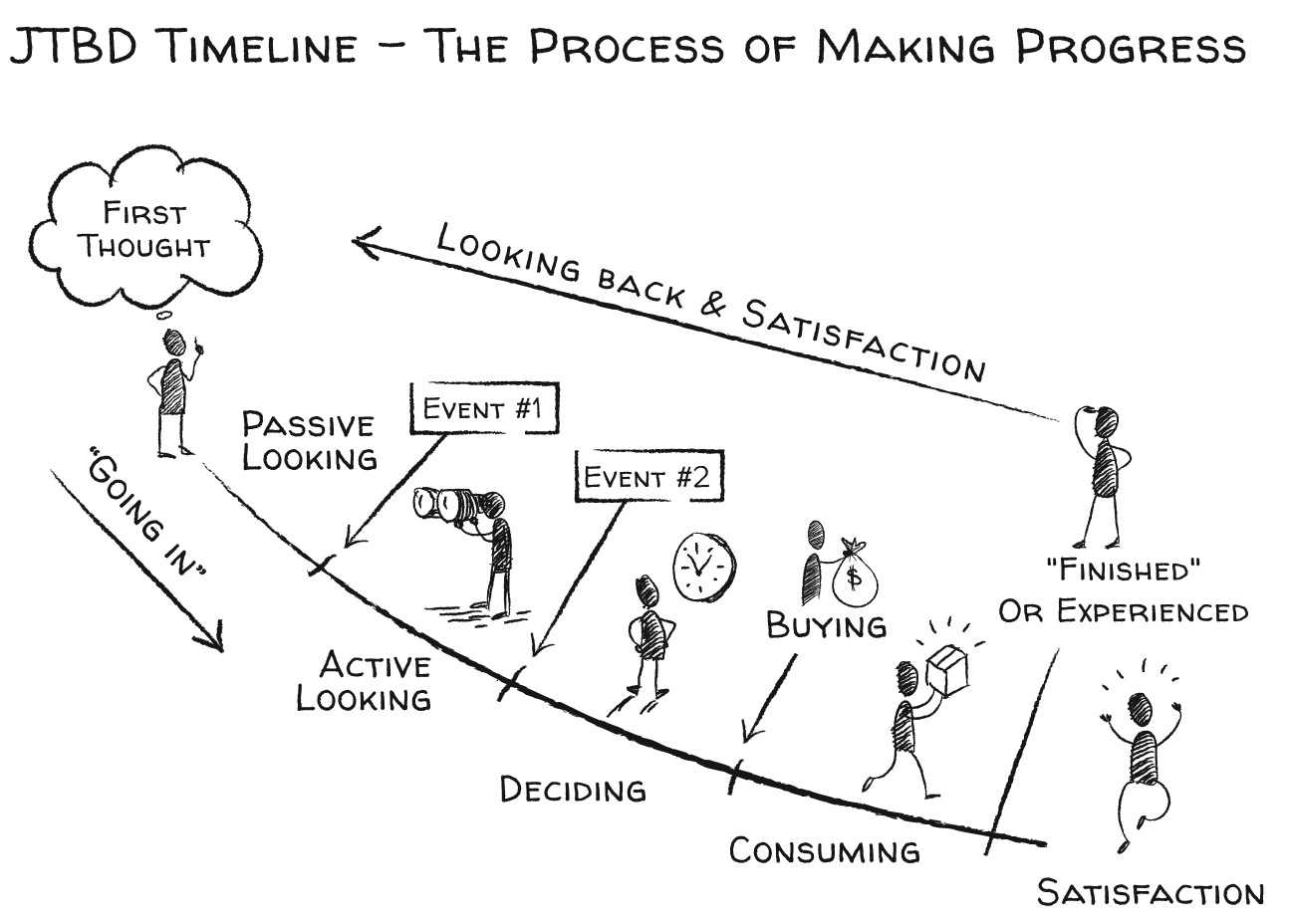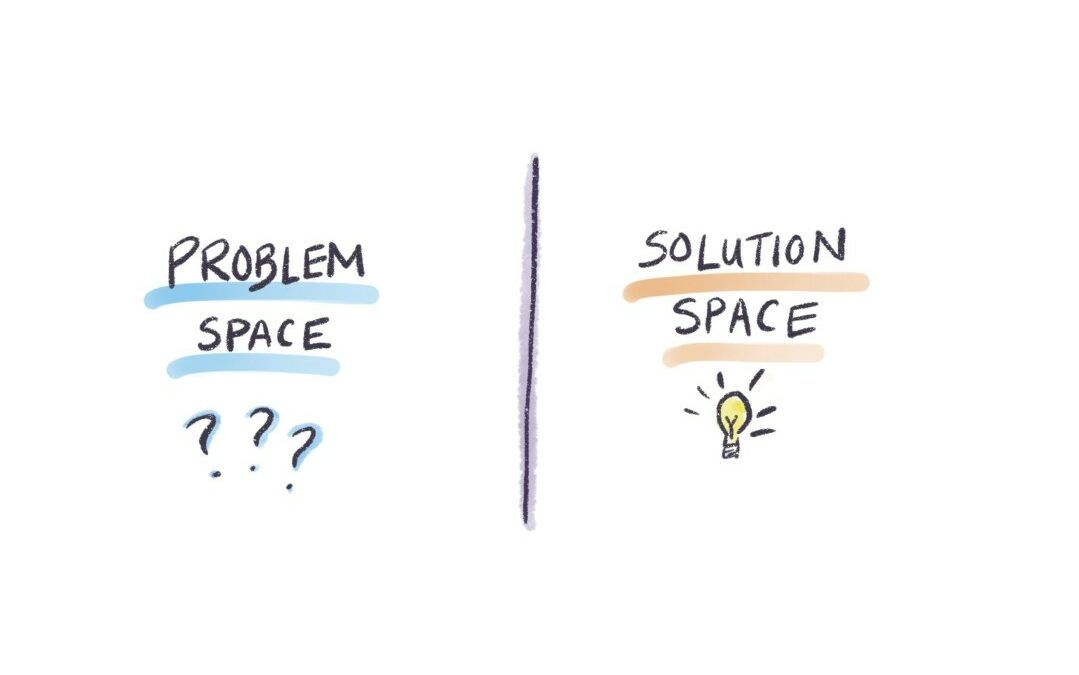Problems, not solutions, create spaces for innovation. ~Ash Maurya Identifying problems is a key aspect of successful innovation. As startup founders, it's important to understand that the real opportunity for innovation lies not in the solutions, but in the problems...

Marketing messages that resonate
Written by

By understanding your customers and their needs, you can create a marketing message that really resonates with them
The Jobs to be Done theory is a powerful framework for understanding consumer behavior and the driving forces behind innovation. This theory, developed by Harvard Business School professor Clayton Christensen, suggests that people don’t actually buy products or services, they hire them to do a job. Understanding the jobs that people are trying to do is critical to the success of innovation and entrepreneurial ventures. In this article, we will explore the main principles of the Jobs to be Done theory and how they can be applied to innovation and entrepreneurship.
Principle 1: People hire products and services to do jobs
The Jobs to be Done theory starts from the premise that people don’t buy products or services, they hire them to do a job. This job could be something as simple as wanting to quench their thirst or something more complex like wanting to improve their sleep quality. By understanding the jobs that people are trying to do, innovators and entrepreneurs can create products and services that are specifically designed to help them do these jobs.
Principle 2: Jobs are evolving and dynamic
People’s jobs are not static, but rather they evolve over time as their needs and circumstances change. For example, a person who hires a ride-sharing service to get to work may eventually hire a car-sharing service to take a road trip. The Jobs to be Done theory suggests that it is important to constantly be monitoring and understanding the evolution of people’s jobs, in order to remain relevant and competitive in the market.
Principle 3: There are multiple solutions to a single job
People have a choice when it comes to the products and services they hire to do a job. There may be multiple solutions to a single job, and each solution may have its own unique strengths and weaknesses. The Jobs to be Done theory suggests that in order to be successful, innovators and entrepreneurs need to understand the strengths and weaknesses of the solutions that are currently available to customers and create a solution that is superior in some way.
Principle 4: Empathy is key
The Jobs to be Done theory places a strong emphasis on empathy, or the ability to understand and share the feelings of others. In order to understand the jobs that people are trying to do, it is important to put yourself in their shoes and understand their needs, wants, and desires. By empathizing with customers, innovators and entrepreneurs can gain a deeper understanding of their needs and create solutions that are truly impactful and meaningful.
Principle 5: Context is important
The Jobs to be Done theory recognizes that the context in which a job is hired is important. People’s needs and wants are shaped by the context in which they are hiring a product or service, and understanding this context is critical to creating solutions that are relevant and effective. For example, the context in which a person hires a ride-sharing service to get to work may be different than the context in which they hire the same service to attend a party.
The Jobs to be Done theory offers a powerful framework for understanding consumer behavior and the driving forces behind innovation. By focusing on the jobs that people are trying to do, and by creating products and services that are specifically designed to help them do these jobs, innovators and entrepreneurs can create solutions that are truly impactful and meaningful. Empathy, context, and a deep understanding of the dynamic nature of people’s jobs are key principles that can help innovators and entrepreneurs succeed in this endeavor.
6-step approach to creating effective marketing message
Using the Jobs to be Done theory for marketing can be a game-changer for your business. By understanding the job that your customers are hiring your product to do, you can create a marketing message that really resonates with them. Here’s how you can use the Jobs to be Done theory in your marketing efforts.
Try this 6 step approach:
Step 1: Identify the job your customers are hiring your product for: Before you can create a marketing message that works, you need to understand what job your customers are hiring your product to do. This might involve talking to your customers, doing market research, or just observing how people use your product.
Step 2: Create a customer persona: Once you understand what job your customers are hiring your product for, you can create a customer persona. This is a fictional representation of your ideal customer, and it should include information about their age, income, education, interests, and more.
Step 3: Develop a marketing message that speaks to their needs: With a clear understanding of your customer persona, you can develop a marketing message that speaks directly to their needs. For example, if your customers are using your product to save time, you might want to focus on how your product can help them get more done in less time.
Step 4: Use customer testimonials: Customer testimonials can be a powerful marketing tool. By sharing real-life examples of how your product has helped people do a specific job, you can show your potential customers that your product is the right choice for them.
Step 5: Highlight the benefits, not the features: People don’t buy products for their features, they buy them for what they can do. So, make sure your marketing message focuses on the benefits of your product, not just its features.
Step 6: Create a marketing funnel: A marketing funnel is a series of steps that take your potential customers from awareness to purchase. By using the Jobs to be Done theory, you can create a marketing funnel that speaks directly to your customer’s needs and helps them understand why your product is the right choice for them.
Sources:
- Christensen, Clayton M. (2016). Competing Against Luck: The Story of Innovation and Customer Choice. Harper Business.
- Christensen, Clayton M. (1997). The Innovator’s Dilemma: When New Technologies Cause Great Firms to Fail. Harvard Business Review Press.
“People convince themselves,
we convince them of nothing”
Jobs to Be Done (JTBD) is a theory of how people buy.
Demand-side sales is a method popularized by Bob Moesta for building a sales program around JTBD.
Understanding consumers at a deep and empathetic level will dramatically improve your sales approach, rather
than focusing only on your product and its features and benefits.
When you also understand where people are in their buying process, helps you position your product or service and shape your marketing message.

Related Articles

Early adopters: who they are and where to find them
When launching a new product or service, it's important to understand the different types of customers you will encounter. Two key categories of customers are early adopters and mainstream customers, and it's essential to understand the differences between them. Early...

Early adopters: who they are and where to find them
When launching a new product or service, it's important to understand the different types of customers you will encounter. Two key categories of customers are early adopters and mainstream customers, and it's essential to understand the differences between them. Early...
Stay Up to Date With The Latest News & Updates
Access Premium Content
Join Our Newsletter
Follow Us

